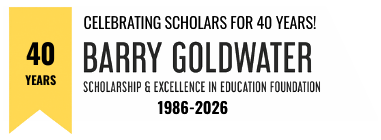Photo credit: James Pancoast
A common thread throughout my scientific career has been how much I enjoy translating complicated topics so that they are easy for everyone to understand. These translation skills require creativity, patience, and compassion for your audience- qualities that I first developed at Carnegie Mellon as a research scientist who loved to talk about my work to colleagues, non-scientists, and just about any one who would listen.
During my freshman year at Carnegie Mellon, I joined the laboratory of Dr. Charles Ettensohn where I worked on developmental signaling programs in the sea urchin embryo, programs that often conserved in human development. Importantly, I also began to understand how these developmental footprints could be altered in human diseases like cancer. Explaining the significance of my basic science work in sea urchins to others was a formidable challenge, but applying to the Goldwater Scholarship taught me how to effectively present this work to a wider audience.
When I was awarded the Goldwater Scholarship during my junior year, I was thrilled that my hard work and dedication to the lab had been recognized, crediting this initial success to the guidance of my research mentors Dr. Charles Ettensohn and Dr. Tara Sharma. Applying for the Goldwater Scholarship was my first exposure to writing a research proposal and advocating for my skills as a research scientist. The award also gave me an extra boost of confidence as I applied for a summer research internship at the Centers for Disease Control and Prevention (CDC), an experience that ultimately set me on my path toward pursuing a Ph.D.
While at the CDC, I was first exposed to how science can impact society. I worked in their newborn screening lab where I developed novel chromatography and mass spectrometry techniques for the detection of blood disorders in newborn babies—a field completely different from my work in developmental biology back at Carnegie Mellon. When I arrived at Harvard University to pursue a Ph.D., I knew I wanted to work in an area with similar impacts on society. I chose a project in cancer biology in which I developed novel drug combinations for the treatment of lung cancer and was awarded the National Science Foundation Graduate Research Fellowship (GRFP) to pursue this work. The bulk of my thesis project used genetic analyses to identify biomarkers that predict sensitivity to my epigenetics-based treatment regimen. This work allowed me to understand not only the intersection of genetics and cancer care, but also the field of precision medicine, an important area of expertise in our evolving healthcare landscape.
During my time in graduate school, I put Andrew Carnegie’s famous words “my heart is in the work” to practice, pursuing passion projects in science communication and policy. I worked extensively with an outreach group at Harvard called Science in the News, delivering publicly accessible seminars on various scientific topics (including my thesis!), producing a blog series explaining complex scientific topics, and leading the group through multiple expansions as its Co-Director. One of my proudest accomplishments in graduate school was developing a daylong biomedical science conference aimed at a public audience (DayCon). This event is now entering its fourth year and engages non-scientists in seminars, panels, and other interactive forums. My time at Harvard has presented endless opportunities like these to develop my scientific translation skills and I plan to harness them in a future career advocating for cancer patients.
I recently completed my Ph.D. in Biological and Biomedical Sciences at Harvard University, receiving additional certificates in Science Communication and Science Policy for my efforts away from the bench. I plan to move to D.C. to pursue a career in science policy with a focus on expanding access to cancer care and precision medicine for all Americans.

